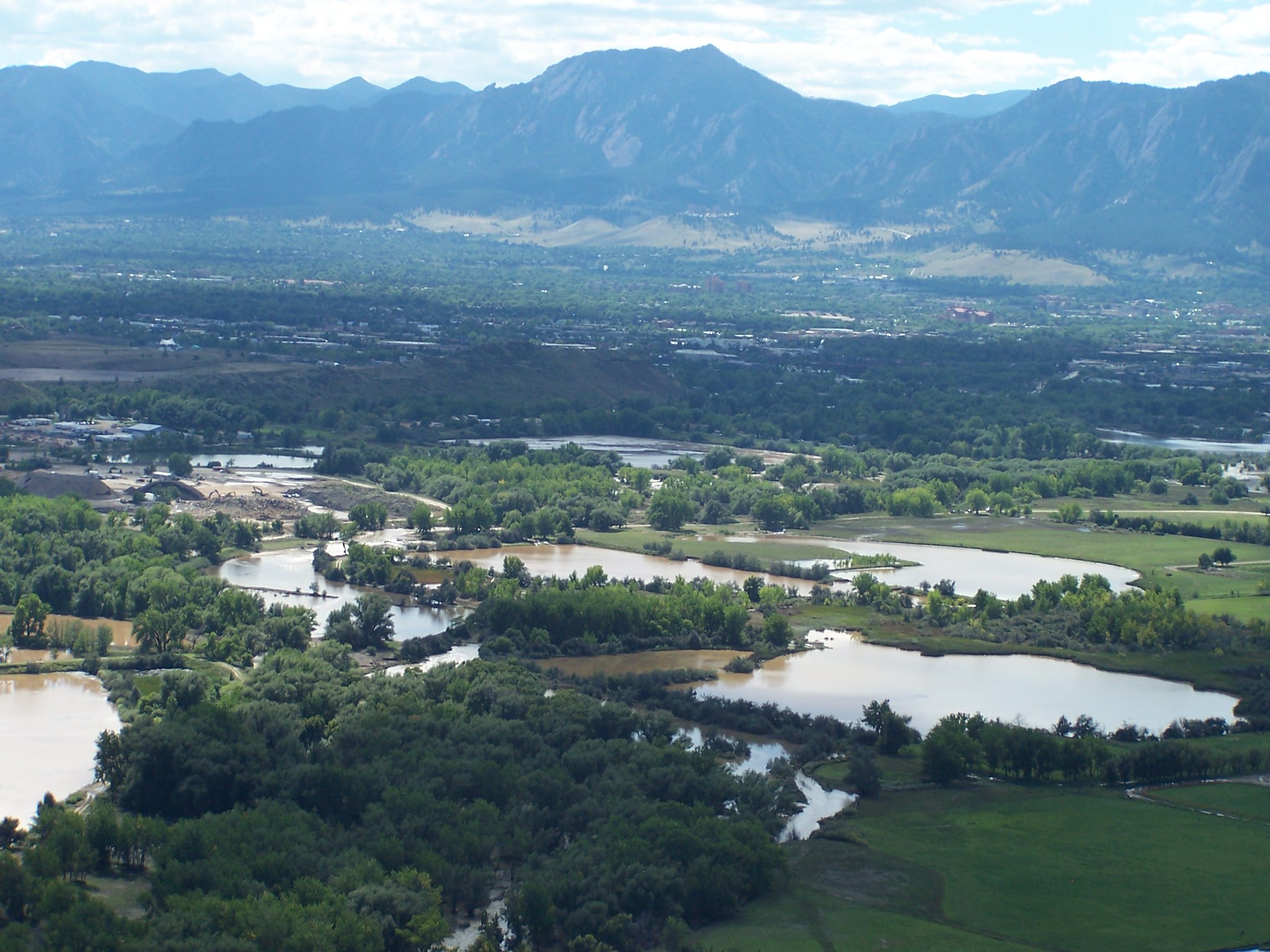
Saturday, Jan. 2, 2021
City council this week will again consider an alternative design for flood control on South Boulder Creek, one that’s been rejected twice before. This time, staff, the open space board and an advisory group of elected and appointed officials are recommending against the plan, pushed by residents opposed to University of Colorado plans for an eventual southern campus.
If city council agrees with that assessment, it will cap an effort to protect south Boulder from flooding — a process that, by the city’s own reckoning, started, nearly half a century ago. Winnowing potential options took two decades.
“The City of Boulder has been considering alternatives for SBC floodplain mitigation since 1973 with the goal of protecting portions of Boulder from the effects of catastrophic flooding,” staff wrote in notes to council. “Between 2001 and June 2020, extensive community, board and council engagement and technical analysis narrowed down potential design alternatives from dozens to three.”
Council settled on a “final” detention, dam and flood wall design in June, but their vote came with a caveat: One more look at resident-proposed design to detain water further upstream on South Boulder Creek. The Open Space Board of Trustees requested further analysis once it was revealed that flood structures would be built on open space land rather than state right-of-way along U.S. 36.
Upstream detention, as the design is referred two, was ruled inadequate by project staff in 2015 and again in 2018. This time, a staff analysis showed that upstream detention would be more costly than the current plan for the same level of protection and would impact more sensitive habitat.
OSBT agreed on Dec. 16, as did an advisory group assembled by the city that included representatives from OSBT, Water Resources Advisory Board, Planning Board and city council.
“The advisory group concluded that although an upstream alternative could be feasible, it does not perform better than the Variant 1, 100-yr design when considering the June 2020 council comparison criteria, and substantial engineered structures would still be required on OSMP lands.”
Upstream detention analysis
Impact to wetlands: 61 acres
Variant 1 impact: 7.7 acresImpact to Preble’s meadow jumping mouse habitat: 58.4 acres
Variant 1: 3.9 acresImpact to Ute Ladies Tresses orchid habitat: 7.1 acres
Variant 1: 2.5 acresEnvironmental mitigation costs: $5.1M
Variant 1: $1.3MDirect impact to open space: 3.5 acres
Variant 1: 5 acresIndirect impact to open space: 45 acres
Variant 1: 0 acres
Indirect impacts = “fragmented” wildlife access or changes to groundwater flow that will change “soil composition, hydrology and vegetation”Cost: $110M (flood protection only; other costs unknown)
Variant 1: $41M (flood protection only; $25M in additional costs)Total project footprint: 52 acres (total detention area not yet determined)
Variant 1: 64 acresEmbankment/floodwall footprint: 28 acres
Variant 1: 10 acresOther attributes of upstream detention:
Requires more complex dam safety review
Larger concrete dam, but no floodwall on open space
It has been more than two years since a previous city council selected an initial design, only to have that scaled back because of concerns over regulatory approval.
OSBT is still unhappy with the Variant 1, 100-year design, due to open space impacts. They reiterated that in notes to council ahead of Tuesday’s meeting: “This should not be construed as an OSBT endorsement of Variant 1.” Board approval may be needed before open space property can be used for flood mitigation.
Tuesday’s upstream detention update will follow a public hearingScheduled time allocated for the public to testify or share commentary/input on a particular ordinan... on redevelopment plans for the Macy’s on Twenty Ninth Street Mall. It’s unclear whether or not council members will take an official vote to accept OSBT’s recommendation; one isn’t required. If a motionFormal proposal calling for a vote is made, a public hearing will be held.
Sign up for open comment or the Macy’s public hearing. Those signed up for public participation will be invited to speak if a public hearing is held for the CU South issue.
— Shay Castle,
boulderbeatnews@gmail.com
Want more stories like this, delivered straight to your inbox? Click here to sign up for a weekly newsletter from Boulder Beat.
CU South Boulder city council city of Boulder CU CU South dam detention flood mitigation flood protection flood wall groundwater flow habitat hydrology Open Space Board of Trustees Open Space Mountain Parks Planning Board Preble's meadow jumping mouse soil composition South Boulder Creek University of Colorado ute ladies tresses orchid Water Resources Advisory Board wetlands wildlife
